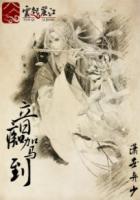"My lad, I thank you for your trouble; but I want no doctor. Do you think I'm looking ill?""Indeed you are," I answered, "ill and thin; and, do you know, I hear you talk to yourself in your sleep nearly every night.""What do I say?" he asked eagerly.
"That I cannot tell," I replied. "It is all rambling talk; the same things over and over again, and nearly all about one person--Lucy.""Boy!" he cried out, as if in pain, or as if something had touched him to the quick, "sit you down, and I'll tell you why I think of her--she was my wife."He moved nearer to the edge of the cliff, and we sat down, almost over the restless sea beneath us.
"She lives in my memory," he continued, speaking more to himself than to me, and looking far out to the horizon, beneath which the setting sun had begun to sink, "in spite of all I can do or think of to make her appear base in my eyes. For she left me to go with another man--a scoundrel. This was how it was," he added, quickly: "I married her, and thought her as pure as a flower; but I could not take her to sea with me because I was only the mate of a vessel, so I left her among her own friends, in the village where she was born. In a little cottage by herself I settled her, comfortable and happy as I thought.
God! how she hung round my neck and sobbed when I went away the first time! and yet--yet--within a year she left me." And he stopped for several minutes, resting his head upon his hands. "At first I could get no trace of her," he resumed. "Her friends knew nothing more of her than that she had left the village suddenly. Gradually I found out the name of the scoundrel who had seduced her away. He had bribed her friends so that they were silent; but I overbribed them with the last money I had, and I followed him and my wife on foot. I never found them, nor did I ever know why she had deserted me for him. If I had only known the reason; if I could have been told of my fault; if she had only written to say that she was tired of me; that I was too old, too rough for her soft ways,--I think I could have borne the heavy stroke the villain had dealt me better. The end of my search was that I dropped down in the streets of Liverpool, whither I thought I had tracked them, and was carried to the hospital with brain-fever upon me. Two months afterward I came out cured, and the sense of my loss was deadened within me, so that I could go to sea again, which I did, before the mast, under the name of Jackson, in a bark that traded to this coast here." And the old sailor rose to his feet and turned abruptly away, leaving me sitting alone.
I saw that he did not wish to be followed, so I stayed where I was and watched the gray twilight creep over the face of the sea, and the night quickly succeed to it. Not a cloud had been in the sky all day long, and as the darkness increased the stars came out, until the whole heavens were studded with glittering gems.
Suddenly, low down, close to the sea, a point of light flickered and disappeared, shone again for a moment, wavered and went out, only to reappear and shine steadily. "A steamer's masthead light," I thought, and ran to the house to give the news; but Jackson had already seen the light, and pronounced that she had anchored until the morning. At daybreak there she was, dipping her sides to the swell of the sea as it rolled beneath her. It was my duty to go off to her in one of the surf-boats belonging to the factory; and so I scrambled down the cliff to the little strip of smooth beach that served us for a landing-place.
When I arrived there I found that the white-crested breakers were heavier than I had thought they would be. However, there was the boat lying on the beach with its prow toward the waves, and round it were the boat-boys with their loincloths girded, ready to start; so Iclambered into the stern, or rather--for the boat was shaped alike at stem and stern--the end from which the steersman, or /patrao/, used his long oar. With a shout the boys laid hold of the sides of the boat, and the next moment it was dancing on the spent waves next to the beach. The patrao kept its head steady, and the boys jumped in and seized the oars, and began pulling with a will, standing up to their stroke. Slowly the heavy craft gathered way, and approached a dark and unbroken roller that hastened toward the beach. Then the patrao shouted to the crew, and they lay on their oars, and the wave with a roar burst right in front of the boat, sending the spray of its crest high above our heads.
"/Rema! rema forca!/" ("Row strongly!") now shouted the patrao, speaking Portuguese, as mostly all African coast natives do; and the crew gave way. The next roller we had to meet in its strength; and save for the steady force of the patrao's oar, I believe it would have tossed us aside and we would have been swept under its curving wall of water. As it was, the good boat gave a mighty bound as it felt its force, and its stem pitched high into the air as it slid down its broad back into the deep.
Another and yet another wave were passed, and we could now see them breaking behind us, shutting out the beach from view. Then the last roller was overcome, and there was nothing but the long heave of the deep sea to contend against. Presently we arrived at the steamer, whose side towered above us--an iron wall.
A shout came to me, pitching and lurching with the boat far below, "Come on board at once." But to come on board was only to be done by watching a chance as the boat rose on the top of a roller. Taking such a one, I seized the side-ropes, swung a moment in mid-air, and the next was on the streamer's clean white deck. Before me stood a tall man with black hair and whiskers and dark piercing eyes, who asked me if I was the agent for Flint Brothers. I answered that the agent was on shore, and that I was his assistant. Whereupon he informed me that he had been appointed by the firm to liquidate all their stations and businesses on the coast, and "he would be obliged by my getting his luggage into the boat." This was said in a peremptory sort of way, as if he had spoken to a servant; and very much against the grain Iobeyed his orders.















